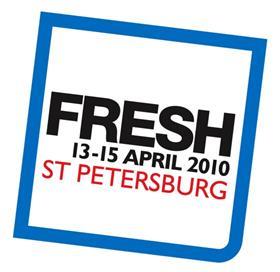
Russia's economic recovery is underway and, during the coming years, opportunities for local and overseas fresh produce suppliers to develop their sales in the market are expected to increase.
That was the stand-out conclusion from the conference sessions at this year's FRESH, which took place on 13-15 April at the Hotel Corinthia in St Petersburg, Russia.
Boris Planer of leading analyst Planet Retail told delegates attending the event that signs of economic recovery had already been noted in Russia, especially in the major urban centres of St Petersburg and Moscow.
However, he said, domestic demand remained 'unstable' and the country's economy was not expected to return to pre-crisis levels until 2012.
'The situation is far less dramatic for food retail in the country,' Mr Planer added. 'The Russian government predicts retail sales to grow by 3.3 per cent this year, returning to pre-crisis level by autumn 2011.'
With inflation in the country moving in the right direction (falling by around half to 7.2 per cent in the 12 months to February), imports are also getting cheaper for consumers thanks to stronger rouble, Mr Planer revealed.
'Russian unemployment has also been falling,' he noted, 'but real recovery will come next year. Structural improvements need to occur in 2010.'
With Russian consumers expected to see health as increasingly important over the coming few years, the fresh fruit and vegetable market is expected to benefit as the country's traditional retail sector shrinks, taking more sales into the modern supermarket sector.
Dmitriy Sharikov, category manager for fruit and vegetables at Russian retail group Okey, confirmed that Russia's retail sector was growing at a rapid pace, and that fresh produce remained a key element in attracting consumers and shoppers.
'We're seeing a very positive trend in terms of selling fresh fruit and vegetables across the Okey store network in Russia,' he told delegates. 'The logistics is a challenge, but Okey is planning to establish new retail distribution centres across Russia, bypassing the old warehouse network.'
Sales of new products like avocados and mangoes would be backed by better product control, for example to monitor ripeness, as consumers proceeded to shift to 'more interesting' fruits in the next couple of years, he said.
'Following the downturn, sales of the more expensive fruits in Russia are starting to recover, for example imported pears,' he revealed. 'Some imported fruits like Spanish oranges can command high prices in Russia.'
Huge growth has also been noted in Russian sales of strawberries and raspberries, notably on the back of increased year-round consumption.
Food safety controls
As Russia's fresh produce import market continues to develop, the issue of food safety has become a major factor and one that is now firmly entrenched in the Russian government's own approach to the sector.
Alexey Saurin of the Russian Federal Service for Veterinary and Phytosanitary Surveillance spoke about recently introduced controls on food safety, which are far stricter now than in the past thanks to the work being done by his agency.
Every year, the organisation checks pesticide residue levels in 12m-15m tonnes of food products, 80 per cent of it domestic, 20 per cent imported.
'We are in the process of signing a series of food safety cooperation agreements with countries supplying fresh produce to the Russian market,' he revealed.
New controls have already been introduced on, among other items, Greek kiwifruit; Belgian pears; Spanish stonefruit and citrus; Italian grapes, topfruit and nectarines; Dutch vegetables; French topfruit; and Portuguese pears.
In the meantime, Russia's crackdown on quarantine violations continues, resulting in a far smaller number of violations in the market itself.
So far this year, Mr Saurin revealed, a total of 13 pest cases have been detected so far in 2010, compared with 198 in 2009 and 335 in 2008.



